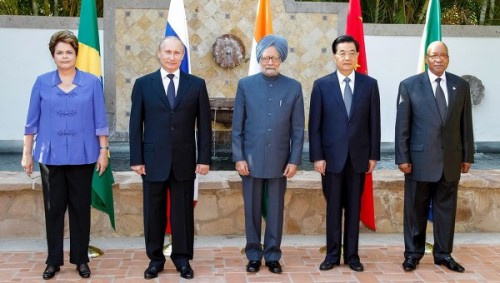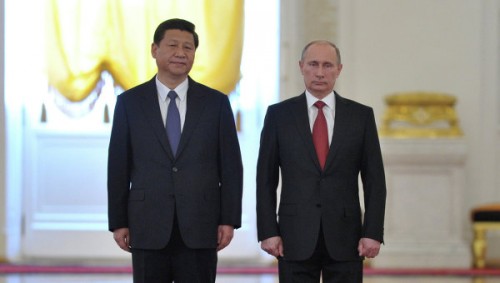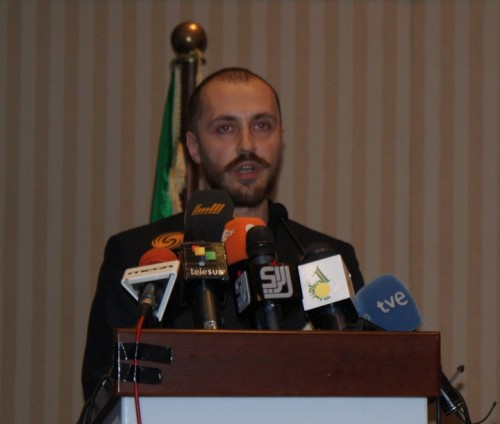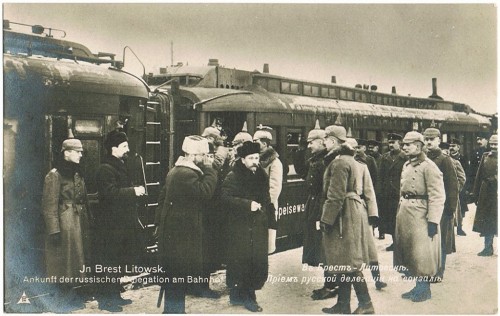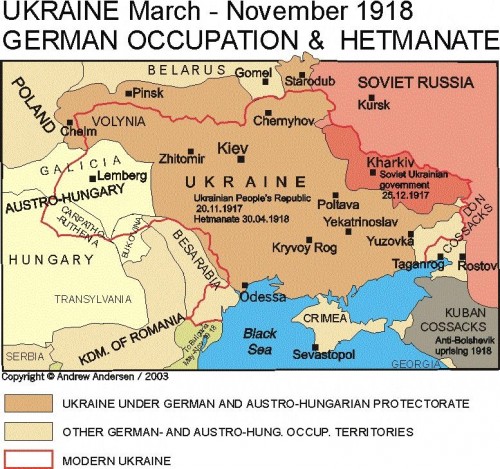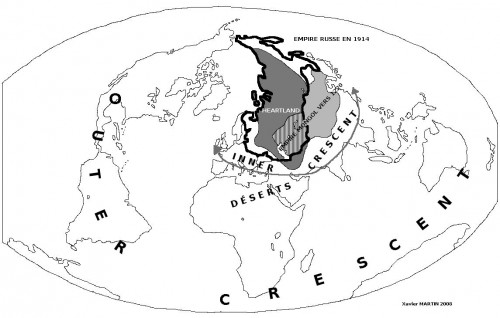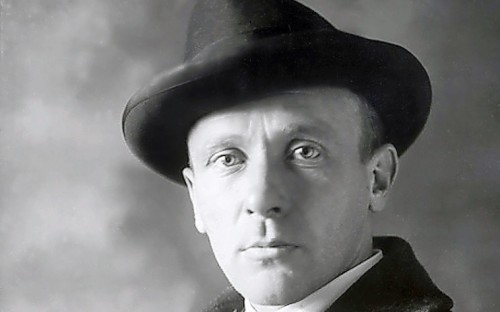- Richard F. Kuisel, Seducing the French – The Dilemma of Americanization, University of California Press, Berkeley/Los Angeles, 1993;
- Reinhold Wagnleitner, Coca-Colonization and the Cold War – The Cultural Mission of the United States in Austria after the Second World War, The University of North Carolina Press, Chapel Hill, 1994.
But the strategies developed in the European countries didn’t work properly: France under De Gaulle left NATO and asserted an original diplomacy throughout the world, partly along the lines defined by the Non-Aligned as suggested by De Gaulle’s famous declaration in Pnonh Penh (Cambodia) in 1966. This new French diplomacy, supported by able ministers like Couve de Murville and Jobert, was also backed by the high technological development of French aeronautics industry, producing among others the famous Mirage III fighters, that gave Israel the victory in June 1967. These planes were sold everywhere in the world and were serious competitors to American equals. Germany, despite its total destruction in 1945 and the millions of men who were prisoners of war in Europe (one million alone for France!), in the Soviet Union and in America could recover completely, in particular due to the courage of the women who helped rebuild the towns, the so-called “Trummerfrauen” or “Ruins ladies”, and could start the real economical wonder at the end of the Fifties, what aroused admiration even among former anti-Fascists. Germany had and still has a weak point: it has no aeronautics industry anymore but a well-developed automobile industry, perhaps the best in the world. The United States lost a lot of parts on the car markets in Europe due to the renewal of the celebrated German car brands: even American consumers started to buy German Volkswagen, Mercedes or BMW, just as Chinese or Russian new rich do nowadays. So the United States, once favorable to the European unification process, in order to get a huge market for their own products, began to reject secretely Europe as a unified economical block and to organize a commercial war against a lot of products like Camembert or Gruyere cheese, bananas from the French islands in the Caribbean Sea etc. European high technology companies, such as a German one producing solar panels, were spied by the ECHELON-Satellites; some former COMECON-countries were invited to join the EU and the NATO, so that the Europeans would pay endlessly for the constitution of a new military block aiming at “containing” Russia. The Europeans were to pay to sustain the weak countries and the Americans were taking the strategic benefits of the new situation without giving out a single penny. The last act of war is of course the speculation against the weaker economies of Southern Europe, in order to strike the “weak Mediterranean” belly of the subcontinent officially described as an ally but actually treated as a foe.
According to geopolitican Robert Strauss-Hupe, who was formerly a collaborator of General Karl Haushofer’s “Journal of Geopolitics” (“Zeitschrift fur Geopolitik”) in his native Germany but had to leave the Reich after Hitler’s arrival to power because he was partly Jewish or had a Jewish wife and had to settle in America where he became an adviser of the US war machine, Europe and Germany in its middle part will always be potentially stronger than the United States for several reasons, among which he counted the excellence of the education systems and the “racial homogeneity”. The May 68 plots, coined by former OSS-officers like Herbert Marcuse (another German emigre) and many others, managed to destroy or at least to handicap seriously the European education systems. The importation of immigrants, having not benefited from a serious level of education in their own derelict countries, aimed at paralysing the social security systems and at compelling the European States to devote incredibly huge budgets to help these new masses of jobless people to survive in everyday life instead of creating for instance a good military or aeronautics industry. Second purpose of mass immigration is to be able to manipulate these masses in order to create severe civilian disorder in countries that could, for one reason or another, loose the links that bond them to America: this was said frankly by a former US ambassador in Paris, Charles Rivkin (that we shouldn’t confuse with the economist Jeremy Rivkin), who started a policy of supporting leaders of agressive youth gangs in the Parisian suburbs and promising them American and Saoudi or Qatari support. The riots that set ablaze the Parisian suburbs in November 2005 were a revenge of the US neo-conservatives aiming at chasing “disloyal Chirac” from power and to replace him by the man who took away a maximum of votes from Chirac’s RPR/UMP and from Le Pen’s “Front National”, i. e. Nicolas Sarkozy, by promising the French to “karcherize the banlieues” and to eliminate the “racaille” (the riffraff) (a “Karcher” is a brand derived noun, as Karcher-machines are used to remove the dust or the filth from houses’ walls by using an extreme powerful water spray). Nothing of that sort was obviously ever done but Sarkozy came to power and brought France back in the NATO and waged a war against Libya, so that the Congress in Washington hadn’t to vote war credits... The 2005 Parisian riots were used to promote an obscure suburb politician, who uttered a strong agressive and hysterical language to gather votes in order to change radically the Gaullist political orientations of his country in favour of the American world strategy. Objective observers can so see what can be the useful purpose of jobless masses in “alien audiences” (Bill Clinton), that are perhaps “allies” but should sometimes be thrashed.
American influence is consolidated by several musical fashions and modes and through media agencies that always convey the US interpretation of world events. In France, the best exemple is furnished by the so-called “nouveaux philosophes”. This bunch of jabbering nonsense and humbug producers is determining the agenda of French politics since the end of the Seventies. The figurehead of the bunch is undoubtedly Bernard-Henry Levy (BHL), who has indirectly —with a leftist or pseudo-theological or pseudo-republican (French style) “wind language” (this expression was coined by Regis Debray)— supported all the American or Israeli moves on the international chessboard, depicting all the ennemies of America as if they all were dangerous Fascists, venomous dictators or backward populists, nationalists or paleo-communists. In France, BHL lead a systematic campaign against all possible challengers in domestic politics and not only against the nationalists around Le Pen. So the “shared values” of the so-called “Atlantic Community of Values” are now a mix of conservative Atlanticists (when some naive Catholics or Protestants believe that Washington is a kind of new protecting and benevolent Rome, as an otherwise interesting student of late Carl Schmitt, Erich Voegelin, who migrated to the United States during Hitler’s time, theorized), of Socialists of all kinds linked to the American Democrats in the Rooseveltian tradition, Manchesterian liberals who believe religiously in the credos coined by Adams Smith’s heirs, left-wing liberals a la Cohn-Bendit whose endeavours to promote the dissoluting anti-values of May 68 in order to weaken permanently Europe for the benefit of the United States, recycled Trotskites who replace the former Bolshevik notion of “permanent revolution” by the the actual practice of “permanent war” on Brzezinski” Eurasian chessboard (see the polemic books and articles of Robert Kagan), a permanent war around the territory of Afghanistan aiming at containing and destroying Russia, perceived as the heir power of the Czars and of Stalin. These are of course the “anti-values”, the values of “Non Being” as Jean Parvulesco polemically called them, against which my friends and I have struggled since the very beginning of our public activities. They are indeed “non being” values as it is impossible to build a lasting state or empire banking on them (for instance Parvulesco’s vision of an “End of time’s Eurasian Empire”). BHL endeavours have as main and only purpose to prevent the return of real political values, such as the ones Carl Schmitt and Julien Freund (among many others) illustrated in their precious works.
- Do you feel more “freedom” in Europe after Obama announced the emergence of a US “Pacific Axis”?
No. Not really. But maybe we can say that constant pressure is not needed anymore in Western Europe now because our countries are politically dead after so many decades of “liberalism” as Arthur Moeller van den Bruck would have said. It is also true that after the tragical and awful events in Libya in 2011-2012, where BHL was Sarkozy’s adviser instead of the French army’s generals (!), the figurehead of the “nouveaux philosophes” has lost a good deal of his impact on public opinion. The Lybian affair caused among other changes in French domestic politics the fall of Sarkozy who betrayed De Gaulle’s vision of international politics, in which France should have played an independant role in front of the orther superpowers. One of the last flops BHL committed in April 2012 was to describe Algeria —which is now simultaneously courted by the United States to join an informal “Southern NATO” around US main ally Morrocco and threatened like Syria is for keeping the militarized FLN in power since the independance of the country in 1962— not as an Arab and Muslim country but as a Jewish and French country! This vicious attack is emblematic in a certain way as Algeria wanted to be an Arab, Panarabian and Arab nationalist country within the community of Arab countries, despite the fact that most of the Algerians are of Berber/Capsian stock. The Arab reference of the Algerian nationalists, who spoke in the Sixties a dialect quite different from the classical Arabic language, was to take the new independant country out of isolation, to participate to a wider range of non aligned nations and to be close to the Nasserite form of the Panarabian ideal. Although a very interesting political figure as the former Algerian President Houari Boumediene remained a purely political thinker who could generate a team of very able diplomats in the Seventies and Eighties (before the terrible civil war of the “Blood Decade” from 1992 to 2003). These diplmats could for instance solve the problems between Iran and Iraq in 1975, when the circulation of oil vessels could be pacifically regulated in the Chatt-el-Arab part of the Gulf. Iran was represented by the Shah and Iraq by Saddam Hussein. Mohammed Sahnoun, adviser of President Chadli (Boumediene’s successor), was the head of a geopolitcal school in Algeria and lead the diplomatic mission to solve the problems in the Grand Lakes area in Africa. Sahnoun pleaded for an Euro-African alliance aiming at keeping the United States out of the Black Continent, especially out of the Horn of Africa, a region which is a strategic bridgehead to the Indian Ocean, described by Mackinder’s heir as the “Heart Sea” in front of Russia as the “Heart Land”. Still more interesting, Sahnoun theorized in a positive way the pacific and cooperative juxtaposition on the international chessboard of “cultures”, that would have to come back to their roots and abandon the false seductions of mean modern ideologies. Sahnoun is the real antidote to the conflict arousing perspective of late Samuel Huntington, who perceived the cultures as automatically antagonist. His ideas find an echo in the works of his Japanese alter ego, Moriyuki Motono, adviser of former Prime Minister Nakasone, who also pleaded for a pacific juxtaposition of “cultural areas” but having this time neighbouring “intersection areas” which would help neighbours to understand each other better, simply because they have in their spiritual heritage values shared by both neighbouring cultures.
Boumediene had been a student of Arab literature and was surely a pious Muslim but he never used religion as an emblem of his “Algerian specific socialism”. When BHL says that Algeria is neither a Muslim country, he attacks also the Salafists of the wide range of Muslim-oriented political forces in Algeria. To say that Algeria is both Jewish and French means that Algeria is unable to help itself and needs a recolonization by the Jews and French, who were expelled in 1962. BHL added that in the short run Algeria will be undergoing an “Arab Spring” like Libya and Syria. This is of course a clear threat to an independant country which has already experimented a civil war that caused hundreds of thousands of casualities. But this has been too much: BHL isn’t taken seriously anymore. Even the Belgian daily paper “Le Soir” (25th April 2013) titled “la Syrie ne fait plus recette” (“Syria doesn’t bring cash anymore”), deploring that initiatives to raise money for the Syrian rebels in Belgium isn’t a success. So the whole ideology that BHL and his chums are trying to impose with a good dose of forcefulness loses currently all impact: people aren’t interested anymore.
This attack against Algeria brings me directly back to your question: the purpose of the Atlanticists is to include Algeria in a kind of “Southern NATO” by giving the former Spanish Sahara to Morrocco and give Mauretania as a kind of newly designed colony to an officially anti-colonialist Algeria, so that Algeria could get its geopolitical dream fulfilled by being simultaneously a Mediterranean and an Atlantic power. The problem is that the distance between de Mediterranean and the first parts of the Mauretanian Atlantic shore is incredbly long: more than three thousand kilometers of sand desert, with poor communications by road or railway and so without any economical utility and permanently under the threat of the Morroccan army, which can at any time withdraw in the Atlas mountains and strike back at will. The gift suggested is not a real gift. The US goal is to control the whole former French West Africa, from Dakar in Senegal to Somalia, Djibuti included, in order to protect the exploitation of oil fields in Nigeria, Camerun and Chad and to prevent the Chinese to be the leading exploiting power in Black Africa. So your question asking if Europeans feel more “safe” or “free” since Obama decided to give priority to a Pacific Axis can be obviously answered negatively as the containment of China in the Pacific implies a US presence in Africa and the creation of a “Southern NATO” being an annex of a general AFRICOM-bolt that would encircle completely Europe on its meridional flank. If China loses its African positions, it will be considerably weakened and unable to order as many goods as nowadays in Europe. Germany would also be weakened and Belgium risks to be in the same situation as Greece or Spain, as its public debt is quite high, especially since the compelled taking over of two bankrupt banks after 2008 (Fortis and Dexia/Belfius): the planned crumbling down of the eurozone would be brought to an end and the “Northern euro” would only be a dream of paleo-nationalists in Germany and Northern Europe. One must not forget that Belgium and especially the Walloon coal-and-steel areas were hit by the Iranian Islamic revolution that prevented the consolidation of the nuclear power and steel industry cooperation that the Shah started with France, Germany and Belgium. The so-called Islamic revolution in Iran had for us all severe consequences so that, even if we refused all forms of agression against present-day Iran and if we respect the positions of President Ahmadinedjad on the Eurasian chessboard and in Latin America (when he cooperated with Chavez), we don’t share some views of yours and of former ex-Maoist journalist Michel Collon about the history of Iran before the Islamic revolution of 1978-79. We don’t forget that the same “nouveaux philosophes” and Trotskites, who preached against the Shah in the streets of Paris, Brussels and Berlin in 1977-78, are now trying to excite people against Ahmadinedjad, exactly as they did against Milosevic, Putin, Lukachenko, Khadafi and others! The purpose is to prevent all cooperation between Europe and Iran, be the regime overthere Imperial or Islamic; therefore we defend the positions of the Shah in the Seventies and we support all initiatives trying to prevent a useless and criminal war against Ahmadinedjad’s Iran.
Obama’s Pacific Axis has thus effects on the Southern flank of Europe. Wherever they strike, they hit us all. Hitting China in Africa means hitting Europe here and there too.
-What do you think about EU-outsiders such as Turkey, Serbia and some ex-Soviet countries like Moldova, Belarus and Ukraine?
Turkey is a tremendously interesting country to study and it fascinates me since two memorable periods in my life: 1) the long trip our Latin and Philosophy teachers organized for us to Turkey in the Summer of 1972; 2) My subsequent reading of Arnold Toynbee’s pages on Bythinia, the Byzantine Empire and the Ottoman Byzantine strategy; according to Toynbee, who was a “byzantologist”, the power that dominates the small narrow former Roman province of Bythinia and the neighbouring Bosphorus area is able to expend in all directions, i. e. the Black Sea, the Balkan, Caucasus, Syria, Egypt and Northern Africa and even beyond if enough material and human means are available. It’s maybe therefore that the American strategist Edward Luttwak has recently written a book about the Byzantine strategy, which aimed, when the Byzantine Empire was still a powerful commonwealth, at controlling all the former areas of the first Roman Empire exactly like the Ottomans will later try to expend alongside the same geostrategical lines. The Ottomans couldn’t perform the task: their sea power was fragilized after the battle of Lepanto (1571) and the definitive blowback was a fact after they failed to take the City of Vienna in 1683. After the terrible defeat in front of Vienna’s walls, their decay period started, even if they could maintain their grip on the Balkans, Syria, Palestina, Iraq and Egypt till the Russian-Turkish war of 1877-78, the Balkan uprisings of 1912-13 and the defeat of 1918. In the eyes of their leader Mustafa Kemal Ataturk, the Islamic-Ottoman option had been brought to an end and the remaining Turkish state had to follow other paths. It should first get rid of the Islamic past and find a new identity that according to Ataturk himself should be a Hittite identity (he therefore opened an archeological museum in Ankara). By choosing a Hittite identity, Ataturk intended to identify his country, reduced to the Anatolian part of the former Ottoman Empire and bereft of all the Iraqi oil fields, with an Indo-European people that came from Europe to conquer Anatolia, where it left an astonishing civilisation, and induced geostrategical lines that were taken over by the Romans and the Crusaders marching towards Syria and Mesopotamia. The Hittite rage didn’t last long in modern Turkey and was replaced in the political mythology of the anti-islamic military elite by Panturkism or Panturanism, aiming at assembling all Turkish-speaking people in one giant state from the Egean to China. This Panturkic ideology was resolutely anti-Soviet as the main Turkish-speaking area the Panturkists wanted to acquire were in Soviet hands in Central Asia. In 1942, when the Germans could have taken Stalingrad and cut in their very middle the supply routes the Americans had created in Iran by organizing the Paniranian railways and in the Northern Atlantic from New York to Murmansk by organizing huge convoys of “Liberty ships” bringing ammunitions and material to the Soviet Army, Turkish officers around Staff-Chief General Cakmak proposed in Berlin to invade the Caucasus but their scheme was so abstruse that the Germans didn’t want this suggested alliance implying the emergence of an even more dangerous super-state in the East.
Erdogan has inaugurated a new era in Turkish politics as he rejects officially the non religious Hittite and Panturanic/Panturkic projects in favour of a renewed Ottoman-Islamic scheme. His aim is to crush the former military elite and to replace it by a new pious “bourgeoisie” that thrived economically in the new developing area in the South-East part of present-day Turkey. We cannot meddle in the domestic affairs of Turkey and dictate the Turks in which way they should think. So be the official ideology Kemalist or Neo-Ottoman/Islamic, we don’t care and simply hear and listen to what Turkish politicians say. But when Erdogan comes to Germany or Belgium and urges Turkish people living in our countries not to assimilate (which I can understand because Europe lives now in a dangerous and deleterious period of decay) and to form a kind of “Fifth Column” in a Europa that they will in the end control and bereave of its identity, we cannot agree. We disagree too with the Syrian policy that Erdogan followed in supporting the Western- and Qatari-backed rebels against the Baath regime of Bechar El-Assad. It would have been better if Turkey had followed its initial policy of friendly relationships with Syria before the fatidic visit of Erdogan and Gul in Damascus in August 2011, when they tried to impose ministers of the rebellious “Muslim Brotherhood” in a next hypothetical Syrian government. The links that the present-day Turkish president has in the bank world of the Gulf Emirates and most probably of Qatar are of course another problem, that can jeopardize fruitful future relations with Europe and Russia. Erdogan’s Minister of Foreign Affairs, Ahmet Davutoglu, nicknamed the “Hoca”, the “Professor”, in Turkey, wanted to develop a neo-Ottoman foreign policy, which we could have accepted in its first version, as it wanted “zero problems on our borders” and started the first positive policy towards Syria, Iran, Libya and other powers in the Near- and Middle-East. But this orientation has had no future, unfortunately. Of course from a European, Austrian, Panorthodox and Russian point of view, we cannot accept the expansion of a neo-Ottoman scheme in the Balkan, that would be backed by the United States, Saudi Arabia, Qatar and the so-called Islamic finance, from which apparently Gul proceeds. Even if Prof. Dugin and his Italian friend Claudio Mutti were deeply influenced by Leontiev’s ideas, which prefered an Ottoman domination in the Balkan than the juxtaposition of false Orthodox mini-powers strongly influenced by modern Western ideas, things have changed in the second half of the 20th century and it is of course now better for all of us to support in the Balkan Croatian or Serbian geopolitics.
This brings us to Serbia. This country is the “core area” of the Balkan. Even if Germans had a general tendency to support Croatia in the Nineties instead of Serbia, the Austrian geopolitician Baron Jordis von Lohausen supported Serbia at the end of his life and even evoked an Axis “Vienna-Belgrado” to link Danubian Europe to the Egean by the shortest river and land roads. Croatia has a different perspective on geopolitics: its geopolitical lines are Adriatic-Mediterranean and the only conflict with Serbia was about a “window” on the Danube river at Vukovar where fierce fights opposed Croatian troops to the Serbian Army. In 1995, the Croatian Army conquered the Kraina region, which was peopled by Serbian villagers but was a strategic balcony threatening Dalmatia’s harbours which were formerly Croatian-Venetian. The dramas of Vukovar and the Kraina have certainly left a huge amount of bitterness in former Yugoslavia but the core area that Serbia is has not been so dangerously threatened as it was later by the Kosovar independance movement lead by the Albanian-speaking UCK-militia. Kosovo was till the Ottoman invasion in the 14th century a pure Serbian province, in which the tragical battle of the “Blackbirds’ Field” took place and in which the oldest Orthodox monastries stood. The independance of Kosovo is certainly the oddest mutilation of Serbian territory that we have to deplore. As you perhaps know, I am and was a friend of both Tomislav Sunic, the Croatian thinker, and of late Dragos Kalajic, the Serbian painter and traditional philosopher who published the Serbian version of the magazine “Elementy”. I am also a friend of Jure Vujic, the Croatian geopolitician and political scientist who recently published a book on Atlanticism and Eurasianism, for which I wrote a foreword: you have commented this book and my introduction on one of your websites. Sunic, Vujic and Kalajic were speakers at our Euro-Synergies’ Summer Courses in France, Italy and Germany. Sunic has written a book on the American Evil in Croatian and so did Kalajic (“Amerikanski Zlo”) in Serbian. In 1999, together with Laurent Ozon in France, I opposed the NATO-intervention against Yugoslavia and I spoke with Kalajic and his Italian friend Archimede Bontempi in Milano, together with the Mayor of the City, to explain how the war against Serbia was a war against Europe, which purpose it was to block all river traffic on the Danube and to destroy for long all developments in the Adriatic Sea, where NATO-fighters dropped their extra bombs in the sea, killing Italian fishermen. We dispatched the texts of the gallant American senator of Serbian origin, Bob Djurdjevic and, on their side, the left-wing Professors Michel Collon and Jean Bricmont did the same: Collon remembers this all around dispatching of counter-information on Serbia as the first resistance action on the internet in a recent speech he held in Brussels and Bricmont was even savagely beaten up by the thugs of the Brussels police and thrown an all night in a dirty cell because he stood in front of the NATO-buildings in the Belgian capital, just as some years later the Italian member of European Parliament and former Justice Secretary of State Mario Borghezio, who had opposed the bombings of Belgrado too, got also —even if he is an elderly man— a hiding with truncheons by the same scum and thrown in a cell: the Italian Embassy had to send officers to order the Belgian government to let him immediately free.
Kosovo is the central part of what Kalajic called the “Islamic chain of States” that Americans and Saudis intended to install in the Balkan in order to bolt the landway between Central Europe and the Eastern Mediterranean, leaving Greece isolated and weakening all possible allies of Russia in this area. Kosovo will shelter the hugest military base of the United States in Europe, the “Camp Bondsteele”, that was built by Halliburton and where a substantial part of the US garrisons of Germany will move to. The purpose of this policy could have been read in Sir Nigel Bagnall’s book about the “Illyrians operations” of the Romans between 229 and 227 B.C. and between 215 and 205 B.C. In these historical studies by the former Chief of the British General Staff, the importance of the central areas of the Balkan are duly stressed: the book has been written in 1990 and its German translation dates back 1995, just four years before the bombings started in Serbia (Sir Nigel Bagnall, Rome und Karthago – Der Kampf ums Mittelemeer, Siedler, Berlin, 1995). A control of this central Kosovar-Serbian part of the Balkan allows every superpower to threaten or control Italy and to benefit from a springboard towards Anatolia and further East, exactly like the Ancient Macedonians did at the time of Alexander the Great at the eve of his invasion of the Persian Empire. The Ottomans, once they could control the same areas in the 14th century, became a permanent threat for Italy, Central Europe and the Black Sea (Pontic) area. So an intact Serbia could have been the territory that would have united Central Europe (Austria’s imperial heritage) and Russia (in a Panorthodox perspective) in the struggle to repel all foreign powers out of the Balkans, the Eastern Mediterranean, the Adriatic Sea and the Pontic area.
Now the EU and the United States are trying to blackmail Serbia, promising a rapid membership in the EU if Serbia recognizes Kosovo as an independant state. I hope Serbia is not going to abandon its traditional position and still will consider Kosovo as a lost province that will one day be Serbian again.
If we hear almost nothing about Moldova here in Western Europe, Belarus is described in our mainstream media as a clownish dictatorship of paleo-communist bigots. Belarus is nevertheless the central part of the North-South “Baltic/Pontic” line. There are three such North-South lines in Europe: 1) the Rhine/Rhone line linking by landways the North Sea to the Mediterranean; 2) the Baltic/Adriatic line from Stettin or Gdansk/Dantzig to Trieste in Italy or Pula in Croatia; this area will in the short run be linked by a direct railway track linking Dantzig to Ravenna in Northern Italy, a City that was the capital of the Ostrogothic Kingdom in Italy, which was conquered by the Byzantine General Belisarius in 536. In the Middle Ages, King Ottokar II Przmysl (1253-1278) of Bohemia wanted to create a realm linking the Baltic Sea to the Adriatic: the future rapid railway track between Gdansk/Dantzig and Ravenna will fulfill his dream; 3) the Baltic/Pontic line has never been united except perhaps by the Goths at the eve of the Hun invasion of Central Europe and the Roman Empire; therefore this line is sometimes called the “Gothic Axis”. The Polish-Lithuanian state was an attempt to restore this Axis under the Baltic-Slavonic Jagellon dynasty but the project failed due to the Ottoman conquest of the present-day Ukrainian territories beyond Odessa and of the Crimean peninsula. In the 18th century, the Empress of Russia Catherine dreamt together with the German philosopher Johann Gottfried Herder to create in this space between Lithuania and Crimea a realm that would be a new Germanic-Baltic-Slavonic Hellas, on the model of Ancient Greece. New enlightened societies would have been created in this area separating Western and Central Europe from Russia, that is simultaneously an “intersection area” according to the Japanese “culturalist” philosopher Moriyuki Motono (cf. supra), who perceives “intersection areas” as unifying factors and not as dividing forces. The very importance of Belarus, as the central part of this potential “intersection area” and of the “Baltic/Pontic” line should prevent the European medias to bash constantly Belarus and its President Lukatshenko and find instead all possible positive approaches of the Belarussian factor.
At the time of the so-called “Orange revolution” (2004-2005), we could have feared that the Ukrainian state would have joined the NATO and have isolated the Crimean Navy base of the Russian Black Sea Fleet, which was one of the purposes Zbigniew Brzezinski hoped to achieve. For Brzezinski the fall of the Ukraine would have meant the total and complete achievement of his long elaborated strategy, as it would have weakened Russia definitively and made of the Black Sea an American-Turkish lake. Due to the victory of the anti-orange party in Kiev and Kharkov, Brzezinski’s project is doomed to be a failure, what he has recognized himself by saying that his long hammered policy of destroying Russia, by supporting the Mujahiddin in Afghanistan, the secessionist forces in the Muslim Republics of the former Soviet Union and the Ukrainian nationalists couldn’t be carried out in due time and that the United States had now to change strategy and try to ally with Russia in order to create a “Northern Hemisphere” Big Alliance with Northern America, Europe, Russia and Turkey (see one of his last books “Strategic Vision”, published in the United States in March 2012).
- Do you think that some of these countries could possibly join the NATO or the EU for political reasons, like Rumania and Bulgaria did at the time of the so-called NATO-enlargement?
Turkey is already a NATO-member and among the most important ones due to the old strategic position its territory occupies between the Black Sea, the Balkan, the Syrian area, the Eastern Mediterranean and Egypt. But there is absolutely no necessity for new countries to join the NATO as this Atlantic Alliance had been set up in the time when communism was still a quite virulent ideology that allegedly wanted to export a “world revolution” and put the rest of the world ablaze. This ideology doesn’t exist anymore, except in the form of “trotskism” now skillfully disguised in neo-conservatism as “permanent revolution” (Trotsky) has become “permanent war” (Kagan): the real “communist danger” nowadays is America as a trostskite/neo-con superpower, even more virulent than the Soviet Union ever was. And even in the last years of the “Cold War”, the American grip on Europe became tighter, after the “century’s market” which imposed American fighters in all the air forces of Western Europe instead of the French Mirage or the Swedish Viggen fighter or a new fighter having been produced by a joint Swedish-French venture. This incident proved that our political elite was rotten and corrupted and that they were not conscious of the treason they committed and, subsequently that we were not free and constantly betrayed by degenerated politicians; all that induced us to reject NATO as an enslaving organisation (slaves are not entitled to carry weapons). So since the very beginning of our activities we were hostile to NATO, as Jean Thiriart was some ten years before us. We could bank on several Belgian political traditions, that never could be implemented: when NATO was created under the impulse of the Belgian socialist minister Paul-Henri Spaak, the conservatives among the Belgian politicians were mocking the attempt to build such an Alliance and nicknamed it “Spaakistan”. They were reluctant to include Belgium and the Belgian Congo colony into such a “Spaakistanese” construct. Later the Catholic Prime Minister and future Foreign Affairs minister Pierre Harmel tried to escape the grip of America by proposing new bilateral relationships between small powers of the NATO commonwealth and small powers of the Warsaw Pact, i. e. between Belgium and, for instance, Poland or Hungary (as Catholic countries, Hungary being a State having belonged like Belgium to the Austrian Empire). These ideas, that were impossible to implement due to the total infeodation of Belgium, are nevertheless still alive in the debates run in the country: Prof. Rik Coolsaet and diplomatic TV-journalist Jan Balliauw continue this critical tradition of Belgian intellectuals and diplomatic personnel who were never tired to criticize American policies on the international chessboard.
In 1984 I had the opportunity to meet at the Frankfurt Book Fair former Division General Jochen Loser of the German Army, who also was the last young officer who had been evacuated by a Ju52 plane from Stalingrad after having lost his hand. Loser had been disgusted by the colonialist behaviour of Americans and moreover by the policy of installing Pershing rackets targeting Warsaw Pact positions, risking to provoke Soviet retaliation on the German soil. Consequently Germany, East and West, could have been wiped out the map through a carpet bombing through nuclear weapons. A neutrality policy based on the models of Austria, Switzerland, Finland, Sweden and Yugoslavia was therefore the only rational possibility. The neutral central zone in Europe should, according to Loser, be enlarged to East and West Germany, Poland, Czechoslovakia, Hungary, the Netherlands, Belgium and Luxemburg. A Swiss-Yugoslavian bunkerized defence system should have sanctuarized the whole area. The perestroika of Gorbachev made this kind of speculations useless. One year later, General Gunther Kiessling, German delegate officer at the NATO Headquarters in Casteau (Belgium) was also disgusted by the fact that High Staf officers were always American or British despite the fact that European armies were more numerous in the forces displayed by NATO; Kiessling subsequently advocated a foreign policy based on Harmel’s ideas. Our positions, at the very beginning of the history of our magazines “Orientations” and “Vouloir”, stood in this rational, political and non ideological way of thinking and our hostility to Washington’s warmongers derives from these objective statements.
- In one of your articles issued in 1998 you wrote about the priority of “Volk” over abstract state. How do you think about this position now when we have a postmodern mix with the social networks, the long-distance nationalism and the immigrants flows?
I don’t remember exactly about which article you are talking. But nevertheless the sense of belonging, the sense of duty and, if necessary of sacrifice, is only possible when you are embedded in a blood and soil humus or if you’re “roped together” (“encordes”) like alpinists with your fellow-citizens as the present-day French philosopher Robert Redeker says in denouncing the degenerative Western fashions, focussing only on the diseased “ego” reduced to the only physical body, the “Egobody”, as he calls it, and trying to embellish it by artificial interventions or bizarre tricks like tattoos, piercings, mamal implants, etc. Modest traditional people should have a “craddle country”, have a dialect, i. e. words of their own that are a part of their intimate identity, an identity that has to be linked by a “long story” or a memory which ought to be embedded in a genuine history and in songs, poems and novels that are their own and non imported. Intellectuals of course have always had a more open mind, could always throw and catch a glimpse beyond the border of their own kinship but this is of course not a reason to reject viciously what’s carved in your own self and create artificially cosmopolitan societies and pseudo-values, believing they are the only keys to the future, i. e. cosmopolitan societies that neo-liberals a la Soros now call “open societies”. A society is dangerously “open” when all its members have lost their memories, when they are serialized like preserved meat cans or like poor battery chickens. The notion of “Volk” was first coined philosophically by Johann Gottfried Herder, who had a great influence in Russia and inspired the “Narodniki” thinkers. This enabled the Czar in the 19th century to pay linguists and grammarians to write down a first scientific Russian grammar and also, a couple of decades later, grammars of the Baltic languages. Later, even the Soviet system could better preserve the small peoples of the present-day Russian Federation like the Mordves, the Chuvashes, the Maris, etc. and give them autonomous districts or republics that kept their cultural heritage intact without even endangering Soviet Union or current Russia as supranational wholes. This also is a heritage of Herder’s thinking, which is “another Enlightenment” quite different than the Enlightenment that generated the Western ideology. You could of course say that the Soviet system of ethnical republics lead to the tragedy of Chechnya and the dangers of an Islamic rebellion in Tatarstan or Bashkirtostan. I answer this objection by remembering that other Republics, like of course Ossetia remained absolutely true to the links they have since about two centuries with Russia and that the Muslim religious authorities in Kazan develop an Islam that is original and immune in front of all the false seductions of Wahhabism.
Religious values can only be kept alive in the “ethnical-ideational” frames that “Volker” objectively are, without any sanctimonious or bigot derivations. Big overcrowded Cities are a danger for the human kind not only in Europe, in Japan or in Russia but also in Africa (see the horrors of the slums in Nigeria for instance) and in Latin America (Mexico City and his criminal gangs having transformed this poor country —that once upon a time fascinated the English writer David Herbert Lawrence— in a “failed State”). Once more the idea of a variety of people on the surface of the Earth, expressed some decades ago by the Breton thinker Yann Fouere and his Irish fellows among the true leaders of Eire (De Valera, MacBride, etc.), is a true and acceptable “inter-national” idea, i. e. an idea shared “among nations” (Latin, “inter nationes”), as the people are “actually existing” and the pseudo-international, cosmopolitan ideas are mere chimaeras. You cannot sell the cosmopolitan ideas of Parisian intellectuals a la Bernard-Henri Levy in Africa. The Chinese by cleverly refusing to impose their own foreign notions to Africans could conquer markets in the most derelict states of the Black Continent because their leaders were fed up by the moralizing and intrusive interference of the West with their domectic affairs. The French-speaking poet and writer Leopold Sedar Senghor, who became President of Senegal, was an attentive reader of Count de Gobineau, described in all possible “antifa” books and essays as the “Father of Racism”. The couple of pages Gobineau devoted to the African people in is “Essay on the Inequality of Races” didn’t upset the future President of Senegal when he read them as a student involved in the “Negritude” movement in France and French-dominated Africa. Senghor stressed the necessity to keep in each possible culture, in Africa, Europe or elsewhere in the world, the figure of the “conteur”, the “storyteller”, who transmit the people’s memory to the future generations. In a developed country the collective “storyteller” could be the historians and philologists, who surely exist in the best way in our societies, but are edged out and bereft of all consideration in front of all the negative figures of modernity like bankers, economists, lawyers, technocrats, etc. who have wiped out the collective memories in our developed societies, destroying what Redeker, as an attentive reader of Heidegger, calls the “encordements”, the “roped-togetherness”, leaving behind a miserable crippled (sub?)human kind unable to react properly in front of all the challenges of postmodern age.
Postmodern thoughts could have been an opportunity to get rid of the Western ideology that claims to be the only heir of the 18th Century Enlightenment and as such the only “true” acceptable way of thinking: all other forms of thoughts being dismissed as unacceptable, racist, fascist, non democratic, etc. becoming automatically a domestic outlaw, who would surely be totally ignored by the mainstream media (which is a contradiction to the “Human Rights” principles as such an edging-out is equivalent to the forbidden political crime of condemning a citizen to the “civil death”) or an international thug, whose state would be registered in the “Black List” of the contemptible “Axis of Evil States”. Armin Mohler —who wrote the most memorable book introducing us to all the aspects of the German so-called “Conservative Revolution” and asked all non-conformist Europeans in the Sixites and Seventies to show an actual solidarity towards all the States that the USA described as “Rogue States”— had hoped in 1988-89, just some months before the destruction of the Berlin Wall, that postmodern trends would have eroded the Western ideology, which in Germany had become a must in the versions coined by Sir Ralf Dahrendorf (who was a British citizen) and Jurgen Habermas. No one could think, elaborate an ideological corpus outside the only few paths indicated by Habermas, the atrabilious professor who was always rising an admonishing finger. Postmodernity signifies first of all relativism. One could have needed a relativism precisely to “relativize” the new compulsory ideology imposed not only in Germany but everywhere else in Western Europe.
Unfortunately for Western Europe and for the ex-Comecon states now included in the EU, the relativism of some postmodern thinkers couldn’t perform the job that Mohler hoped that we would have achieved. The relativism of postmodern thoughts leads to a still more “sensate” world of decay, that the late and regretted French thinker Philippe Muray called the “festivism”, mocking the current trend to invent new “postmodern” festivities like Gay Prides to replace traditional and liturgical religious festivals or ceremonies. Mohler hoped that postmodernity would have restored an ironical criticism banking on the traditional irony of Ancient Greek philosophy (Diogenes), on the famous “Hammer’s philosophy” of Nietzsche aiming at generalizing a “joyful knowledge” and on some aspects of the Heideggerian will to “fluidify the concepts”, that’s to say to eliminate all the rigidities the concepts had acquired by time because of the bad habits of starchy philosophers who only could repeat stupidly what their brilliant teachers in the past had said, so that they were constantly losing the substance and rigidifying the forms. Heidegger had been ordered by Conrad Grober, his parish priest (who as an eminent theologist became later the Archbishop of Freiburg-im-Breisgau), to study the concepts of Aristoteles in order to think beyond the rigid concepts the Scholastics had clumsily fabricated out of the genuine Aristotelian materials. According to Grober, Aristoteles’ concepts were more dynamic than static: the schoolmen hadn’t understood properly the meaning of the Greek grammar tenses, that express a variety of time meanings, among which some were rather static and others frankly dynamic. The schoolmen had only kept the static meaning in their narrow brains. Grober wanted to restore the dynamic nuances and save the Catholic faith (it was his main aim!) of sclerosis due to a too static interpretation of Aristoteles’ concepts by the scholastic tradition.
The worldwide adoption of the poor substanceless cosmopolitan cogitations will surely destroy ethnical and ethical values, i. e. the “Volker” and “volkisch”-determined values Herder and the Narodniki wanted to save by a constant acitvity of poets, archeologists, philologists, grammarians and historians as well as the religious traditional values eminent men like Guenon, Evola, Tucci, Schuon, Coomaraswamy, etc. wanted to restore. “Nationalism” in the positive sense of the word, that’s to say in the sense Herder had wanted to impulse in Germany, Russia and elsewhere, implies that you feel as your duty to immerge yourself in your national-ethnical-linguistic surroundings, as actual and non fictional surroundings, in your “Nahe”, your proximity, as Heidegger has taught us and as he had practiced it by drinking beers with his beloved and often forgotten brother Fritz in the pub of his native town of Messkirch in Schwabenland and by having long walks on the paths of the Black Forest near his small chalet of Todtnauberg. Heidegger also stressed the importance of the “Nahe” in a speech he held in plain language for the inhabitants of Messkirch in 1961; the speech was about television: Heidegger explained that television was a devilish device introducing “Farness” (“die Ferne”) into our “proximity” (our “Nahe”), ruining the entrenchments and real-life links we needed as stabile and not uprooted beings. Nowadays with modern devices as MP3, iPods and another useless knick-knacks every possible event or presposterous fancy spectacle is permanently irrupting in our daily lives: strident or cacophonic GSM-bells are ringing when you’re in your bath, in a tramcar, in a romantic restaurant, in your girlfriend’s bed or at a serious meeting, pupils can watch a film in the classroom without being caught by the unaware teacher, young girls and boys are emitting curious sounds in the bus because they’re listening to loud crazy music, so that they’re even conscious of making noises. This kind of subhumanity you can observe now in your daily life is maybe the humanity of the “last men twinkling their eyes” (Nietzsche) but they are surely “people without a centre” as Schuon explained it in his tremedously interesting book “Avoir un centre”, trying simultaneously to find a remedy to this anthropological disaster. Schuon opted for meditation in the Sahara desert or among the Sioux in North America.
These are the very results of the lost of all form of liturgy in religious life: D. H. Lawrence warned against such a lost in his booklet “Apocalypse” and Mircea Eliade devoted almost all his life to the study of real-life faiths. Maybe as Orlando Figes explains it in “Natasha’s Dance”, his recent book about Russian intellectual life before the Bolshevik revolution, the “Old Believers” revolted against the modern world in being in the 16th, 17th and 18th centuries because rituals and liturgical sacred gestures were scrapped out of Russian religious life... So you can surely create a virtual community of “nationalists” or of “traditionalists” on the net, you can get a lot of information from all parts of the world but your duty is nevertheless “hic et nunc”, here and nowhere else, now and not in the past or in a hypothetical future, here in the liturgical traditions and gestures that have given cohesion to your ancestors’ communities. If these traditions have been forgotten or mocked away, you simply have to remember them and let them remember by your fellow-countrymen, by performing the sometimes modest job of the philologist or the ethnologist or the archeologist as Herder induced us to do. Scores of people in Western Europe are now trying to revive past gentle and well-balanced traditions, despite the silence of the mainstream medias.
Mass immigration is a weapon to destroy societies, as former US Ambassador Charles Rivkin has acknowledged it: the present-day European societies are destroyed because the relativism —induced by modernity and forcefully imposed by devilish postmodern subversive intellectuals— renders the people unable to find a positive solution to the problem. The immigrants are also destroyed by the simple fact that their traditional family values will also be eradicated, as all will in the short run become “centerless” beings.
- And how would you link your traditional “volkisch” ideas with the suggestion Prof. Dugin has formulated in his 4th Political Theory, for which the “People” as “Volk” or “Narod” remains a subject of history but not expressed as a “nation” in a land or as a “class” but as a “Dasein” according to Heidegger’s philosophy?
Difficult question to answer as I wasn’t sent a copy of Dugin’s “Fourth Political Theory”. The “Volker” cannot be efficient subjects of history anymore, even if there are sometimes notable exceptions as the protesting Icelandic people that could escape the choking policy of the cosmopolitan banksters or the Venezuelan people that stood behind Hugo Chavez. Carl Schmitt explained very well that now the real subjects of history are the “Grossraume” (the “Greater Areas”), a volunteer assembly of ethnical or non ethnical countries around a hegemon (super)power. Small nations cannot achieve anything now, except domestic cohesion policies, which are of course duly needed. The BRICS-countries are now all “Greater Areas” and are hegemon in their own domestic territory; they are also able to assemble around their leadership smaller powers in their neighbourhood.
“Dasein” means literally in German “to be there” or the “being-there”, so that we are brought back to the previous question. I am because I am located here. I cannot “be” ubiquitously in two or three different places, so I cannot act as a genuine “zoon politikon” (Aristoteles) if I have no location or a score of locations, like the so-called modern “nomads” that a mainstream pseudo-thinker like Jacques Attali admires so much and suggests as models for future mankind. Man is linked to his “oikos” and cannot be a perfect “zoon politikon” if he lives elsewhere or if he is moving ceaselessly. That’s one aspect. But Heidegger, even if he defined himself as a native of Messkirch, was certainly not a short-sighted thinker. I suppose the aspect Dugin wants to stress in his book is the notion of “authentic man”, willing to escape the world of modern standardization, the world that his student and former girlfriend Hannah Arendt called the “world of the petty jobs”. We live in the anthropological ruins (Evola!) of modern world where mere existence is repetitive, dull, nonsensical. This cannot be “real life” according to existentialist Heidegger. Therefore “Dasein” has, let’s say for the purpose of explaining here the matter in a narrow nutshell, a second meaning in Heidegger philosophy. “Dasein” is often translated into French by the word “existence” (as Sartre did in the late Forties). In this way the “Sein” is simply the world or the universe that was given a sense yet, be it static, lifeless, material or be it vivid, growing, dynamic, vegetal or animal. For a human being, or better said for a “zoon politikon”, “Sein” without a given sense is not enough. He or she has to jump voluntarily into existence and if you jump from (“ex”) an indefinite place, as the mere “Sein” (“res stantes”) is, you arrive of course “there” where you’re born or “there” where you’ve chosen to be, you are “ex” the “res stantes”, i. e. in a dynamic, dangerous world, an “ex-istence”, where you have to struggle or to suffer to be authentic. We are not satisfied with the ruins of modern world, with the mess of the “festivistic” postmodern societies in which we cannot do anything else but rebel. Our “Dasein” is also this rebellion which is the jump out of this mess, or better said the result of the willing jump we had the audacity to perform in order not to rotten in “in-authenticity”. This rebellious jump is performed by thousands and thousands of people throughout the world, resulting in the birth or rebirth in the “real risky and revolutionary life” of the authentic men, the ones who want to remain for ever traditional “zoon politikon” or traditional “Kschatriyas” or “Brahmani”. It is in this sense that I understand your question and subsequently Dugin’s position. Dugin dreams obviously of a worldwide rallying unity of “authentic traditional men” that have set a step backward in front of the mess that modernity is, thus having opted first for what Arnold Toynbee called a “withdrawal” to meditate, to recreate metaphysical authenticity in non modern spiritual areas, like the Old Believers lived in remote villages on the shore of the White Sea or in the deepest forests of Siberia, to come back one day, the day of the “return” (Toynbee), when a new cycle will start.
To think further into this Heidegger and Arendt vision of “authentic life”, I am reading now the works of the Italian theologist Vito Mancuso, who wrote precisely a book significantly titled “La Vita autentica” (= “Authentic Life”).
- In this sense how might political metaphysics become actual in Europe where strong secular moods are now dominating, while you have the rise of Islam within the European societies now as well as on the other side of the Mediterranean?
Dugin indeed very often uses the phrase “political metaphysics”, referring mainly to the traditional corpuses of Guenon and Evola. Dozens of authors revive now, after Evola, Guenon, Schuon and many others what we can call “political metaphysics” or simply “metaphysics”, whereby “metaphysics” can eventually be politicized. Metaphysics as the traditional knowledge of things active and linked together behind the physical appearances, as a non material, intuitive and poetical ability of selected humans to perceive the divine “noumena” beyond the mere “phenomena” has been gradually rejected as a “ridiculous irrationality” in the Western thought patterns and Immanuel Kant proclaimed the end of metaphysics in the last decade of the 18th century. Many tried to save metaphysics from oblivion, others replace it by “culture philosophy” (Hamann, Herder) or by history (Hegel, the Hegelians and the Marxists). The modern and postmodern world rejects metaphysics since the 18th century as well as, since the last phases of this catastrophic shift leading towards present-day visible “Kali Yuga”, culture as cement of societies and history as a prospective move towards a better future, because both culture and history implies also duties. Kant could theorize an ethical approach of duty without metaphysics, because he was the philosopher who declared metaphysics was abolished or to be abolished: this sense of Kantian (Prussian!) duty was ruined in the long run by extreme individualism and consumption society. “Culture” as Hamann or Herder undesrtood it has also vanished and history as it had been formerly conceived by some existentialists (Sartre, Camus, Malraux) and by the Marxists is also mocked and rejected by postmodern relativists. Even the most seducing “Ersatze” of metaphysics are now rejected and mocked by postmodern relativism. Nevertheless it must be said here that the true understanding of metaphysics was only a privilege of intellectual or religious elites, having undergone a long training or initiation: for common people liturgy, religious festivities and rites were factually more important, because they were giving sense to their lifes and were rhythming their daily existence. All these old peasants’ festivities and rites have also vanished out of our everyday life to be replaced by what Philippe Muray calls “attractions”, i. e. media tricks, or “parodies” as Guenon or Evola would have said. Francesco Lamendola, a present-day Italian philosopher, whose articles you can find on high interesting sites like http://www.arianneditrice.it or http://www.centrostudilaruna.it , explained us recently that even the official Catholic Church is now unable, despite certain efforts of Pope Benedict XVI, to revive metaphysics or traditional ways as it has too long tried to ape modern media subcultures to be saved again from total decay: his article was illustrated by a photo showing priests and nuns dancing and twisting their bodies like crazy youths, hippy-style... Once you tolerate such undignified attitudes by the very guardian of your religion you cannot find easily the way back to more worthy positions. Secular bric-a-brac has invaded and neutralized everything in the religious realm of people in America and Western Europe, what induces another current Italian philosopher, Umberto Galimberti, to define christianity as “a religion of the empty heavens” (“la religione dal cielo vuoto”).
What concerns Islam, you must keep in mind that we would fully accept a truely traditional Islam as it has been illustrated by high figures such as Seyyed Hossein Nasr, Henry Corbin (and his follower Christian Jambet), Michel Chodkiewicz or the Algerian thinker Meriboute. Their visions, that could be spiritual models for Iran and Central Asia, or could be connected with the Iranian medieval mystique (Sohrawardi) or the Flemish-Rhinish mystical tradition (Ruusbroec, Meister Eckhart, Sister Hadewych, Nicolaus von Cues, etc.), have of course nothing to do with present-day salafism or wahhabism or with the inadequacies preached by the Muslim Brotherhood that has set Syria aflame in 1981-82 and once again since about two years. Unfortunately the mix of salafism, wahhabism and Brotherhood’s Islam is currently seducing thousands of young immigrants in Europe today, who then reject both the modernist lunacies and the healthy remains of traditional Europe. Tariq Ramadan’s thoughts have also a real impact nowadays on Muslims in Europe but, even if this Swiss-based Muslim intellectual leader seems to suggest some interesting anti-Western ideas, we should not forget that, according to very recent historical studies performed in the United States and in Germany, his uncle Said Ramadan, another prominent Muslim Brother in the Fifties, helped actively to replace all the pro-European (and anti-Soviet) imams of Munich’s main mosque and Muslim religious centre in Germany by Muslim Brothers with the help of CIA-agents as the Muslim Brothers were at that time plotting against the Egyptian leader Gamal Abdel Nasser (nicknamed the “Pharao” by his domestic foes) for the high benefit of Israel as they are plotting now against the Syrian Baathist power elite. This kind of Islam is, despite American-made “Golems” like Al Qaeda or Bin Laden, an instrument in the hand of the United States and Saudi Arabia and aims under many other projects at recreating a strong strategic “bolt” of islamized or semi-islamized states (Greater Albania, Kosovo, a potentially islamized Macedonia, autonomous Muslim-Turkish areas in Bulgaria, etc.) in the Balkan against Serbia, Europe and Russia, as the Serbian traditionalist thinker, diplomat and artist Dragos Kalajic observed attentively before his early death some years ago. Kalajic used to call this project the “dorsale islamique dans les Balkans”.
- We see that many people are protesting in the streets of many European capitals but how resistance can occur and develop in “bourgeois societies” like these of the EU?
First “bourgeois” societies are going to vanish if middle classe people and workers all together will be completely ruined by inflation and economical crisis. In Spain, Portugal and Greece you’ve surely a social agitation but not a revolutionary spirit able to modify thoroughly society. In iceland the demonstrations have at least compelled the government to refuse to pay banks back and to sue the responsible ministers and throw them in jail. In Italy, the last elections, with the success of Beppe Grillo, prove that people don’t believe in the usual corrupted parties of the worn-out old partitocracy: this is a good thing, proving that the election process, presented in the media as the quintessence of true democracy, is ruined, is pure fake, as soon as non elected technocrats are taking over power in spite of people’s rejection of corruption and technocratic governance. In Belgium the conventional trade unions tried to mobilize their militants so that they refuse austerity but tell us nothing about the too high prices for energy, food in supermarkets and insurance fees, that are eroding the purchase power of all our fellow-citizens. In France, the situation is astonishing: people were tired of neo-liberal Sarkozy but reject also socialist Hollande whereby protests are focussed on homosexual marriage. France seems to reject left-wing Voltairian pan-criticism and the typical French May-68 ideology for which homosexuality, gender problems, criminality, marginality, etc. were considered as an aspect of a certain intellectual and moral superiority in front of the conventional mass of heterosexual women and men, of fathers and mothers: this previously non politicized mass seems now to be fed up to be seen by all mainstream medias as inferior (or as potential fascist thugs) and mocked by the so-called “intellectual elite”. Gender speculations and Gay Prides were also set out as expressions of the true “Republican values”, which are now rejected by a wider mass of citizens reacting in a non materialistic, non “sensate” way. This could be a way out of the bourgeois mentality which is of course “sensate” in the definition once given by Pitirim Sorokin.
- In Gramsci’s words, citizens need a consensus for managemant and co-evolution but it seems now that the Euro-bureaucracy and the transnational financists have usurped all the necessary tools for decision-making...
Technologically speaking we don’t live in Gramsci’s time anymore so we must avoid all anachronisms. Gramsci was influenced by the Italian neo-Macchiavellian school of sociology (Mosca, Pareto, Michels) where the notions of ruling (oligarchy) and challenging elites (revolutionists) were very important. Gramsci was the main thinker of the pre-Fascist Italian communist movement, in which he saw an instrument to abolish the power of the Italian oligarchy (his beloved brother on the contrary saw Fascism as a better instrument to control the oligarchy!). In order to be efficient, the revolutionists had to start a cultural struggle mainly by using popular and classical theater as a tool. So did the Futurists around Marinetti, who became fascists, and so did Brecht in Germany, who remained a communist. In the eyes of Gramsci, modern Italian street theater would create consensus but now the heirs of the non communist but leftist (Lenin: “leftism as the infantile illness of communism”!) are creating dissensus in French society and the pussy riots or femen “happenings” in the purest Sixties’ style are mainly considered as vulgar and ridiculous. True “subversion” of the establishment’s power can only be now a kind of blowback, a return of the usual “decency” of traditional societies as George Orwell wanted also in his time to be the main option of socialist forces in Britain and elsewhere. Orwell and his heir the Slavist Anthony Burgess (who is not read anymore...) rejected deviant behaviours within the Left as it was, in their eyes, the best tools of the oligarchies to cancel the efficiency of peoples’ protest.
The Eurocracy is now generally rejected in all Western European countries. The policy of austerity leads to a general contestation of the Eurocratic power so that at the end of April this year they announced officially that they would find out another solution. But it is impossible for them to change their type of governance as they would automatically and definitively be expelled from power. Europe has now to make a choice: either she takes the option for the shortsighted oligarchy’s “economical/financial reasons” or she makes the decision in favour of the “vital reasons”. The first option means political derath; the second, survival.
- What do politicians and geopoliticans in Europe think about Russi and other Eurasian countries such as India and China?
Politicians and mainstream opinion-makers generally follows what NATO says. In France, despite the present-day revolt against the May 68-elites, the “nouveaux philosophes” still determine foreign policy. Bad things are said about Russia, of course, as Putin is described as a kind of “new Stalin” who manipulates all elections held in your country. In China the Human Rights are said to be fully neglected and Tibet is considered as crushed as well as the Uighours of Chinese Turkestan (Sin Kiang). India is perhaps better perceived, except when the BJP-Hindu nationalists are in power. The geopolitical schools in Europe on the contrary have an objective view on Russia, India and China. In Germany people as Peter Scholl-Latour or Alexander Rahr knows that the United States are constantly imposing geopolitical views that are opposite to the natural interests of Germany. Aymeric Chauprade, who published his books on geopolitics by the “Ellipses” publisher in Paris, was fired from the Military Academy as soon as Sarkozy came to power because he wanted to remain true to the Gaullist independent French position towards NATO. Geopolitical schools see the development of the BRICS-powers as positive because it allows us to escape America-centrered unipolarity on the international chessboard and, above all things, create a multipolar cohesion in the world that will be strongly linked by telluric-continental highways from the Atlantic shores till the Pacific Ocean.
- From the point of view of eurocentrism, what is Russia? Is there any fears of a “yellow threat”?
When we use the word “eurocentrism” in a positive way, we think about historical periods where a kind of Eurasian unity would have been possible without great efforts or was de facto actualized. In the 18th century, Louis XVIth, Maria Theresa of Austria and Catherine of Russia were allied against the Turks and the British (at least unofficially), and their kingdoms and empires stretched from the Atlantic to the Pacific, not to forget that Russia possessed at that time Alaska, the Hawai and a portion of the Pacific Coast of North America till Fort Ross on the former Russian-Spanish border in California! The Holy Alliance or Pentarchy (as Constantin Frantz called it) was an implict alliance from Ireland to Alaska that was deliberately destroyed by the British and the French at the time of the Crimean War. The “Drei-Kaiser-Bund” (the “Three-Emperors-Alliance”) of Germany, Austria and Russia was also an implicit alliance but not so strong as the two previous ones, as the Western Atlantic coast was lost and as the United States had become a non negligible power, that could conquer the Californian coast after a war against Mexico and buy Alaska to allow the Czar to conquer Central Asia. Arthur Moeller van den Bruck and the “National-Bolsheviks” among the German diplomats or militants wanted at least a German-Soviet tandem that would have strategically united half Europe and Sovietized Russia, from Hamburg till Vladivostok. The craze of a possible “yellow threat” is not a specific West-European or German phobia, even if Emperor Wilhelm II was maybe one of the main representative of this phobic trend before 1914. The French Slavist Georges Nivat has analyzed the fear of a “Chinese threat” in Russian literature between 1850 and 1914 as well as the ideological rejection of Asian or Buddhist fashions among some Petersburger intellectuals, whereby the “Chinese threat” shouldn’t be seen exclusively as racial but also as a rejection of a too centralized and bureaucratized state. The Imperial Chinese “Mandarinate” was seen as a threat for human freedom and free will, as genuine virtues of “Christianity” (i. e. of European and Ancient Greek culture). In principle China isn’t a danger as China is centered on itself. China proposes the world an international organization where no single power would have the right to interfere in others’ domestic affairs. In Africa, the only problem China can create is on the level of high sea fishing: if Africans cannot benefit from the fish along their own coasts, they risk an awful food dependancy that could have catastrophic consequences, especially if coupled with the already existing food shortages and the draughts in the Sahel area.
- Nikolai Danilevski in his book “Russia and Europe” wrote that Europeans were afraid of Russia because of its huge landmass overhanging over Europe... But we have also differences in religion, ethos, etc.
We’ve stated since long that Russian patriots are swinging between a Danilevski-oriented nationalism and a Leontiev-oriented traditionalism. Danilevski was partially influenced by Darwinism like some but not all “Pangermans” and saw a coming struggle for survival and domination between “old peoples” (Britain, France) and “young peoples” (Russia, the Slavs in general). Leontiev was more traditional and ortthodox and wanted the status quo being preserved, especially in the Balkans. The Europeans feared Russia’s demographic boom in the 19th century, exactly as Europeans and Russians had also feared Chinese demography or fear the current African or Northern African population boom or as the French at the end of the 19th century were obsessed by the increase of German population, while their own population was decreasing. Russia in the 19th century was mainly a threat not for Europe, as France, Belgium, Germany invested a lot in Russia, but for British liberalism and for British India as soon as the Czar’s armies managed to control Central Asia till the Afghan borders: huge armies could have been ready to invade India, the cornerstone of the British Empire and the key to control the “Heart Sea”, which is the Indian Ocean. The Crimean War, that destroyed the strategical unity of Pentarchy, as the embodiment of European civilization, and weakened Russia only for a couple of decades, is the very source of the geopolitical and metaphysical opposition between East and West, as Dostoievsky pointed it out in his “Diary of a Writer”. The West appeared as a subversive force that was undermining the unity of “Christianity” (i. e. Europe and Russia perceived as a strategical unity). According to Constantin Frantz, the lack of interest in European unity in France and Britain was due to colonialism: both French and British empires hadn’t their centre in Europe anymore and could survive without the necessity of a unity: this lead directly to the catastrophe of World War One. The differences in religion and ethos can more easily be bridged, at the sole condition that Catholics or Protestants aren’t trying to convert others by all means, not only in Russia or in Orthodox countries but also in Muslim areas, in China or in India. Protestants US based sects should also give up their missions in Catholic Latin America. The giving up of proselytism should be one condition of world peace alongside the renouncing to interfere in domestic policies as the Chinese have asked for.
This week, the French weekly magazine “Valeurs actuelles” (n°3989) publishes a world map showing the “clash between religious dynamics” where not only Islam or Muslim fundamentalism is pushing forward in Muslim countries, in Africa (Nigeria) or in India but where the mostly US based “Evangelic churches” are thriving tremendously as they are extremely active in Latin America (and in Spain due to Latino immigration!), in Catholic Black Africa (West Africa, Congo, Angola, etc.), in China, Japan and the Philippines. The map shows us also the progression of “religious diversity” in the United States, in Australia, in all European countries, in Russia and in China, Corea and Japan. “Religious diversity” means obviously a decrease in social coherence when this diversity is imported and means also, one should not forget it, a general and problematic uprooting of people when “natural” or “native” religions are disappearing, even in their christianized or islamized syncretic forms (see the recent tragical fate of Tumbuctu mosques and libraries or of the Serbian Orthodox monastries in Kosovo). Both the conquests of Wahhabism (or Salafism) and of the American “Evangelic Churches” are proofs of the victories of “unipolarity” even if the United States pretend to be the main foe of “Al Qaeda”. Both hyper-active fundamentalisms, i. e. Saudi Wahhabism and US-perverted Evangelism, aims at conquering or re-conquering lost territories or territories that had been previously immunized against Puritanical-Wahhabite subversion, for instance by intelligent and efficient civilian-military developing regimes. Latin America has reached a certain level of independance thanks to the Mercosur common market, the indigenist positions of Morales in Bolivia or the anti-imperialist actions and diplomacy of late President Chavez: the South-American continent risks in the long run to be totally subverted and reconquered by the social action of the Evangelic churches. In Africa it is obvious that the secret aim of these churches is to cut French-speaking Africa from France and the EU and to replace French or European (and Chinese!) influence by American domination in order to get the oil of this part of the world. In China the Evangelical moves have as purpose to break the cohesion of the Han Chinese society and to create confusion and dissensus, exactly like in the 19th century when a civil war lead by a curious convert to a kind of strange christianity cost China more than 20 millions dead. So this religious subversion is one of the weapons used to eliminate China as a competitor superpower in the Far East, like military containment, support of fundamentalist Uighurs in Sinkiang, Cyberwarfare, etc. are other weapons pointed against Beijing.
The increase of “religious diversity” in the main countries of the EU means a lost of social and political cohesion that corresponds to the purposes of the geopolitician Robert Strauss-Hupe, who became an adviser of the US presidents Roosevelt and Truman, alongside a certain Mr. Morgenthau who wanted to transform Germany into a bucolic agrarian state in the very middle of Europe. Now, as Socialist Thilo Sarrazin fears it, Germany will be unable to produce the needed engineers to let the German industrial machine work properly. The same is true for other European countries and so Morgenthau’s dream risks to become reality: Germany as a weak industrial country animated by crazy sociologists, who would be a kind of leisure class priesthood, that would impose a “festivist” way of life (with ubiquitous sexual permissiveness and with the “femens” as new tarty nuns!) and would flay as “fascist” all those who would plead for a more rational society (see Helmut Schelsky, “Die Arbeit tun die Anderen”).
- Thank you, Mr. Steuckers, for having answering these questions. Do you want to add something or to formulate some other remarks?
Caucuses like yours and ours should study geopolitics and history in all their aspects and know all about the forces that activate the Muslim world from the Atlantic coasts of Morrocco to the tiniest islands of Indonesia. We must create a world elite of men and women totally immune to the artificial propagandas produced by US based media agencies. Therefore we must meet as often as possible, exchange ideas by means of interviews, but at a more trepident tempo as it has been done till yet: the others are not lazy, so we may certainly not be less active, otherwise the metapolitical battle will be definitively lost for us.




 del.icio.us
del.icio.us
 Digg
Digg
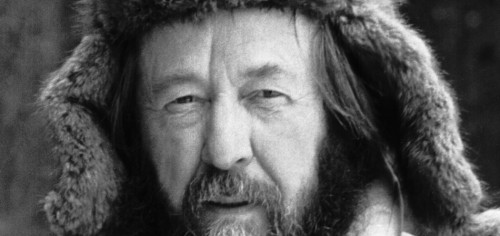

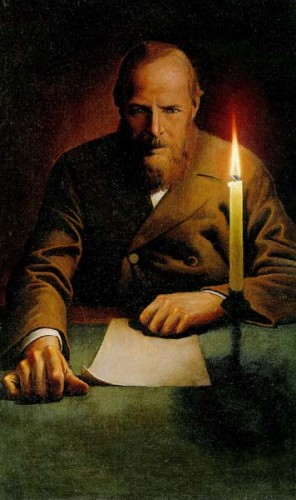 Parti des banques et des médias, le PS se veut aussi un parti d’avant-garde, un parti refondateur de notre France et de l’espèce humaine.
Parti des banques et des médias, le PS se veut aussi un parti d’avant-garde, un parti refondateur de notre France et de l’espèce humaine.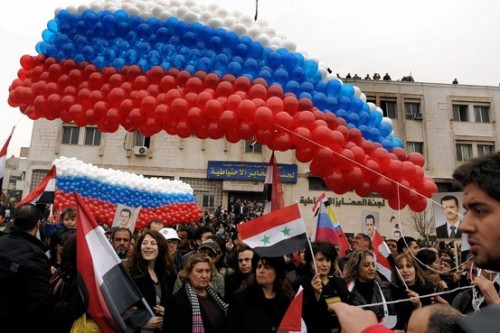

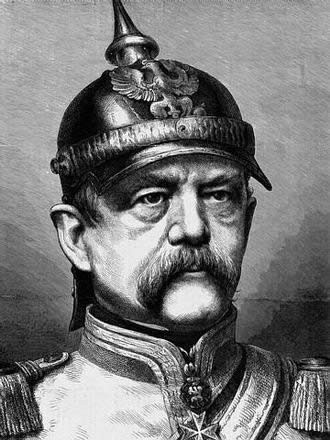 Am 6. August 1862 begegnet Otto von Bismarck in Biarritz dem russischen Fürsten Nikolai Orloff und dessen Gattin Katharina, geborene Trubezkaja. Der künftige „Eiserne Kanzler“ verknallt sich auf der Stelle in die 22-jährige Blondine. Er selbst ist bereits 47.
Am 6. August 1862 begegnet Otto von Bismarck in Biarritz dem russischen Fürsten Nikolai Orloff und dessen Gattin Katharina, geborene Trubezkaja. Der künftige „Eiserne Kanzler“ verknallt sich auf der Stelle in die 22-jährige Blondine. Er selbst ist bereits 47.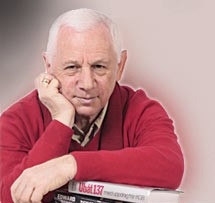 Der heute 74-jährige Topol (Bild), der in den 70er-Jahren nach Europa und anschließend in die USA ausgewandert war, sich später aber auch in seiner postsowjetischen Heimat einen Namen machte, hat nämlich für Erotik einiges übrig. Mit seinen Büchern „Russland im Bett“, „Neues Russland im Bett“, „Die unschuldige Nastja, oder: Die ersten 100 Männer“, „Ich will dein Mädchen“ etc. sorgte er dafür, dass seine Leserschaft in jedem neuen Werk von ihm auf Prickelndes wartet. In „Bismarck“ kommt sie – wenn auch nicht mehr so ausgiebig wie früher – auf ihre Kosten. „Ich kann mich noch erinnern, wie das funktioniert“, gesteht der Autor schmunzelnd.
Der heute 74-jährige Topol (Bild), der in den 70er-Jahren nach Europa und anschließend in die USA ausgewandert war, sich später aber auch in seiner postsowjetischen Heimat einen Namen machte, hat nämlich für Erotik einiges übrig. Mit seinen Büchern „Russland im Bett“, „Neues Russland im Bett“, „Die unschuldige Nastja, oder: Die ersten 100 Männer“, „Ich will dein Mädchen“ etc. sorgte er dafür, dass seine Leserschaft in jedem neuen Werk von ihm auf Prickelndes wartet. In „Bismarck“ kommt sie – wenn auch nicht mehr so ausgiebig wie früher – auf ihre Kosten. „Ich kann mich noch erinnern, wie das funktioniert“, gesteht der Autor schmunzelnd. 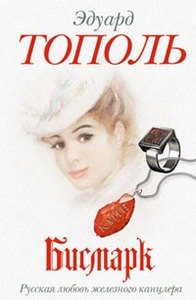 Katharina stirbt aber noch viel früher als er mit 35. Als Bismarck das erfährt, verfällt er für sieben Jahre in Depression. Inzwischen hat er als Politiker ziemlich alles erreicht, die Liebe seines Lebens ist aber nicht mehr auf dieser Welt. Wozu dann das Ganze?
Katharina stirbt aber noch viel früher als er mit 35. Als Bismarck das erfährt, verfällt er für sieben Jahre in Depression. Inzwischen hat er als Politiker ziemlich alles erreicht, die Liebe seines Lebens ist aber nicht mehr auf dieser Welt. Wozu dann das Ganze? 
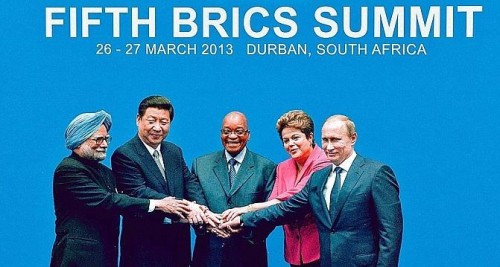

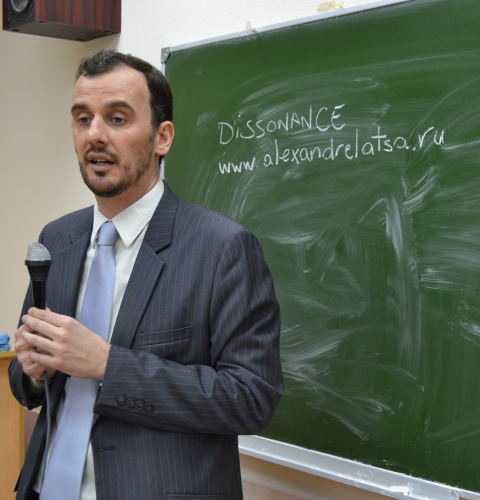
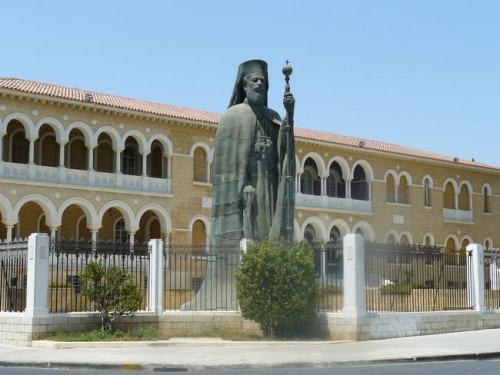
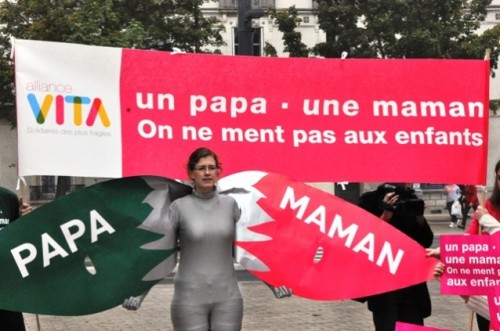
 Das Ministerium hat bisher noch keinen Kommentar zu dem
Das Ministerium hat bisher noch keinen Kommentar zu dem 